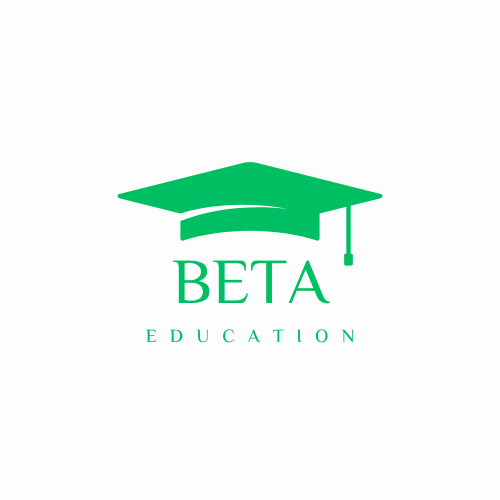 Beta-Learn Platform (BLP)
Beta-Learn Platform (BLP)
Course Content
Topic outline
-
-
Announcements Forum
-
-
1- Communication Skills
Objective: Enhance the ability to articulate ideas clearly and listen effectively.
Key Components:
- Verbal Communication: Speaking clearly, confidently, and concisely during job interviews, meetings, and presentations.
- Written Communication: Writing professional emails, reports, and resumes that effectively convey ideas and information.
- Active Listening: Engaging with others by giving full attention, showing understanding, and responding thoughtfully.
Examples:
- Role-playing mock interviews.
- Crafting concise, impactful resumes and cover letters.
- Practice paraphrasing in discussions to demonstrate active listening.
Impact on Job Search: Strong communication skills allow candidates to present themselves effectively in interviews, negotiate job offers, and build rapport with potential employers. Clear communication is often a deciding factor in hiring, as it reflects the candidate’s ability to work in team settings and handle client relations.
-
2- Teamwork and Collaboration
Objective: Develop the ability to work well with others in various team settings.
Key Components:
- Collaboration: Working cooperatively with diverse colleagues to achieve common goals.
- Conflict Resolution: Addressing and resolving disagreements constructively.
- Empathy and Understanding: Recognizing and appreciating diverse perspectives in a team.
Examples:
- Group projects or case studies that require joint problem-solving.
- Activities centered on resolving hypothetical workplace conflicts.
- Peer-feedback sessions that simulate real-world team dynamics.
Impact on Job Search: Employers look for individuals who can fit into existing teams and enhance collaboration. During interviews, providing examples of successful team experiences can showcase adaptability and interpersonal skills, increasing hiring prospects.
-
3. Adaptability and Problem-Solving
Objective: Foster the ability to adjust to new situations and solve problems creatively.
Key Components:
- Flexibility: Adjusting to changing job roles, industries, or technologies.
- Critical Thinking: Evaluating information and situations to make informed decisions.
- Resilience: Maintaining focus and productivity during stressful or changing circumstances.
Examples:
- Case studies that simulate sudden changes in work projects.
- Creative problem-solving exercises.
- Discussion of real-life examples of overcoming obstacles or challenges.
Impact on Job Search: Adaptability is crucial in fast-paced industries. Employers favor candidates who demonstrate resilience and a proactive approach to problem-solving, making them stand out as resourceful hires capable of handling unexpected challenges.
-
4. Time Management and Organization
Objective: Equip learners with the ability to manage their time effectively and stay organized.
Key Components:
- Prioritization: Identifying high-value tasks and focusing on them to improve productivity.
- Goal-Setting: Establishing short-term and long-term objectives.
- Task Management Tools: Utilizing tools such as calendars, task lists, and project management software to stay on top of deadlines.
Examples:
- Time-blocking activities to plan out a mock workweek.
- Exercises focused on breaking large tasks into manageable steps.
- Reviewing and applying productivity techniques like the Eisenhower Matrix.
Impact on Job Search: Candidates who manage their time well are perceived as efficient, organized, and reliable. During interviews, showcasing examples of successful time management—such as balancing multiple projects—can reassure employers that the candidate can handle job pressures and meet deadlines.
URL: 1 -
5. Emotional Intelligence (EQ)
Objective: Strengthen the ability to understand, use, and manage emotions positively.
Key Components:
- Self-Awareness: Recognizing one's emotions and how they affect performance.
- Self-Regulation: Managing emotions effectively, especially under pressure.
- Empathy: Understanding the feelings and perspectives of others to build strong relationships.
Examples:
- Reflective exercises that explore emotional reactions in various situations.
- Role-playing exercises to practice managing stress or interpersonal conflicts.
- Group discussions on empathy and its role in leadership and collaboration.
Impact on Job Search: Candidates with high emotional intelligence are viewed as leaders and effective team members. In interviews, discussing how one has managed stressful situations or mediated team conflicts can demonstrate maturity and interpersonal acumen, making them more attractive to employers.
-
6. Leadership and Initiative
Overview:
Leadership involves taking charge, making decisions, and inspiring others. Initiative shows a proactive approach in seeking opportunities for improvement.Key Components:
- Decision-Making: Taking responsibility for sound decisions.
- Inspiring Others: Encouraging colleagues to achieve shared goals.
- Delegation: Assigning tasks and offering support to ensure success.
Example Activities:
- Leading group projects to practice decision-making and delegation.
- Providing constructive feedback to peers.
- Developing and presenting business action plans.
Impact on Job Search:
Employers look for leadership potential even in non-managerial roles. Demonstrating leadership in past experiences highlights your ability to take initiative and drive results. -
Conclusion:
Soft skills are essential for career success, as they complement technical expertise and help individuals navigate workplace dynamics, solve problems, and build meaningful professional relationships. Mastery of these six soft skills not only enhances employability but also ensures long-term success in any job role. Candidates who invest time in developing these competencies are better prepared to present themselves as well-rounded professionals capable of thriving in today’s competitive job market.
